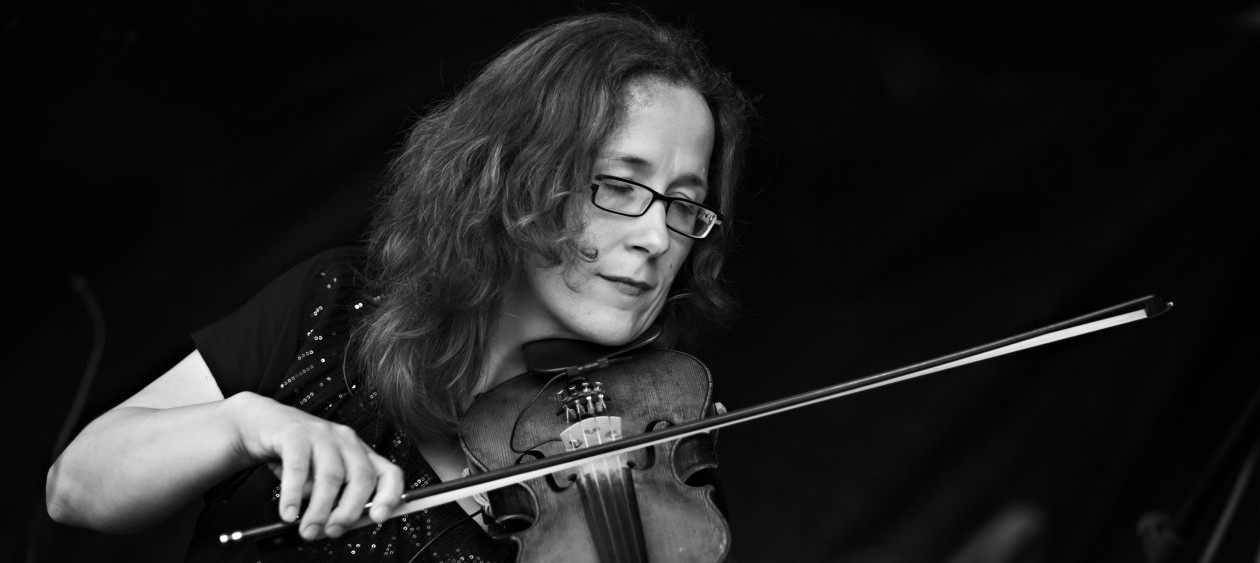Féileacán na Saoirse received a lovely review in the Boston Irish Reporter (p.14)… http://www.bostonirish.com/sites/default/files/issue/BIR%204_15web.pdf
Here’s the text in the post:
Anna Falkenau, “Féileacán na Saoirse” • A native of Germany, Falkenau has spent a good chunk of her adult life in Ireland, at University College Cork (during that time she was a member of Liz Doherty’s Fiddlesticks ensemble) and, for the past decade, in Galway; in between, she pursued a graduate degree right down the road at Wesleyan University. So perhaps it’s not a surprise that she’s equally at home with Irish and American fiddle styles, and “styles” is indeed the key word here, because Falkenau shows herself capable of playing in a variety of settings, whether Sliabh Luachra and other Irish regional traditions, American old-time, and modern – including her own compositions as well as a couple by Liz Carroll.
Falkenau’s modus operandi on “Féileacán na Saoirse” – which is Gaelic for “Butterfly of Freedom” – is astute and appealing. Except for one track in which she’s joined by guitarist Kevin Hough and Mary Shannon on tenor banjo, a solo on a pair of hornpipes, and another in which she accompanies herself on viola – a gorgeous, intense rendition of the air “The Wounded Hussar,” as popularized by Sliabh Luachra legend Padriag O’Keeffe – the CD is a series of duets between Falkenau and different instrumentalists. Guitarist Ged Foley, late of the Battlefield Band and Patrick Street, plays on four of the tracks, and the rest are one-offs: Lena Ullman on five-string banjo, Holly Geraghty on harp, Steve Swee- ney on accordion and the indubitable Johnny “Ringo” McDonagh on bodhran.
The effect of this is to focus attention on her fiddling while at the same time providing a variety of moods and contexts. Her collaboration with Sweeney on a trio of classic session jigs (“The Sporting Pitchfork/High Part of the Road/Connachtman’s Rambles”) is fun, loose and easy-going; Geraghty underscores the gentleness of “Ivan’s Waltz,” a Falkenau original; the American tune “Richmond,” with its crooked phrasing and style of bowing that is markedly distinct from Irish fiddling, gets a fine lift from Ullman’s five-string; and McDonagh provides his characteristically spot-on rhythm for a medley that is arguably the album’s highlight – it begins with Falkenau playing the Irish reel “The Jolly Tinker” at a slow pace, then changes key and tempo and finally segueing into the Scottish pipe tune “The Little Cascade,” full of accents and tricky transitions. Her stints with Foley include “Sally Coming Through the Rye,” an otherworldly West Virginia tune Falkenau plays in open A tuning, and her own “Vodka & Chocolate,” a moody, moderately-paced reel, and a pairing of “Caoineadh Ui Néill (Lament for O’Neill)”—from the repertoire of another Sliabh Luachra swami, Denis Murphy—she plays solo before Foley escorts her into Carroll’s gloriously sublime “That’s Right, Too!”
The butterfly, as science teaches us, is not only lovely in its appearance, but also quite hardy, what with the long distances it migrates – rather like the music Falkenau champions. (Sean Smith)
